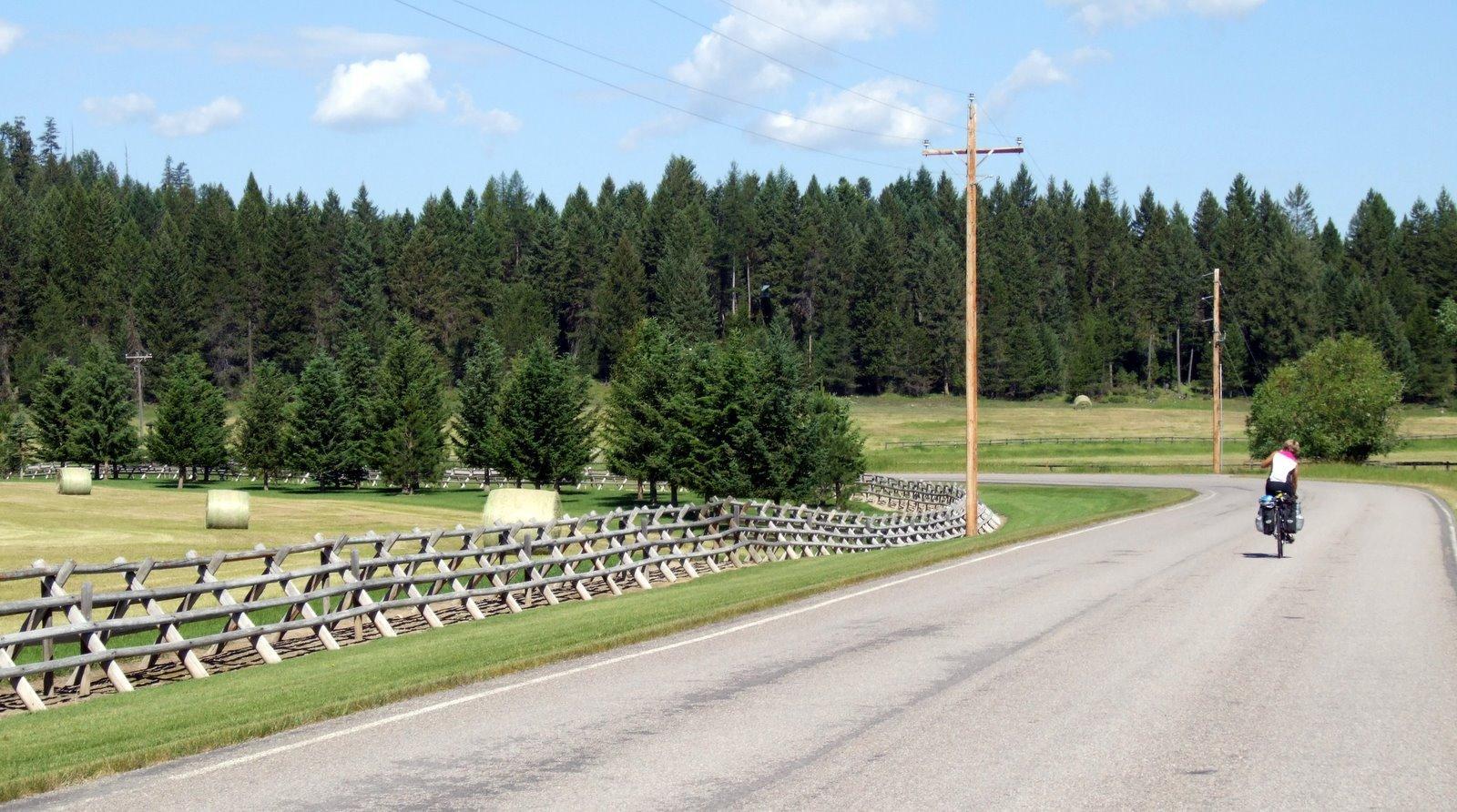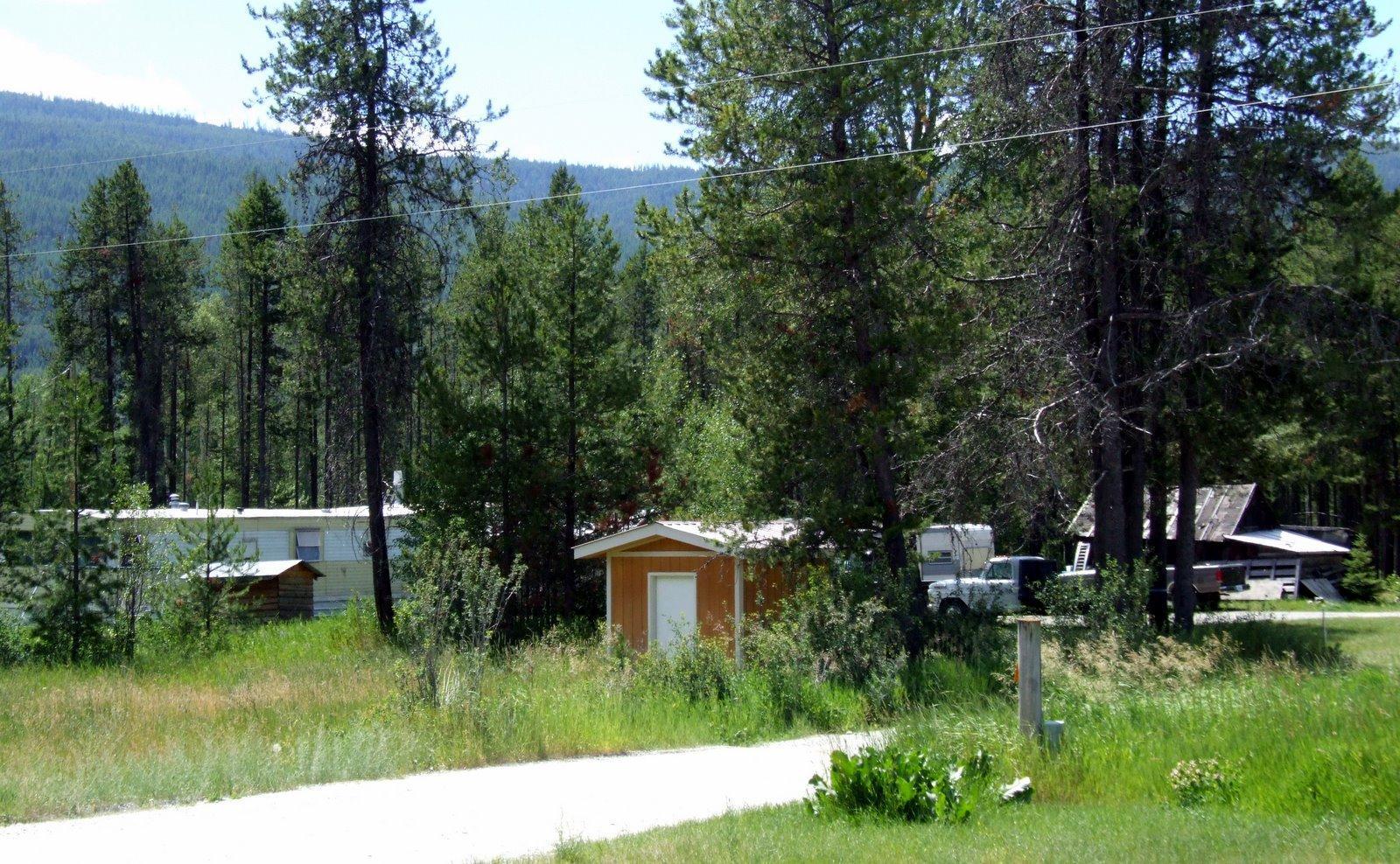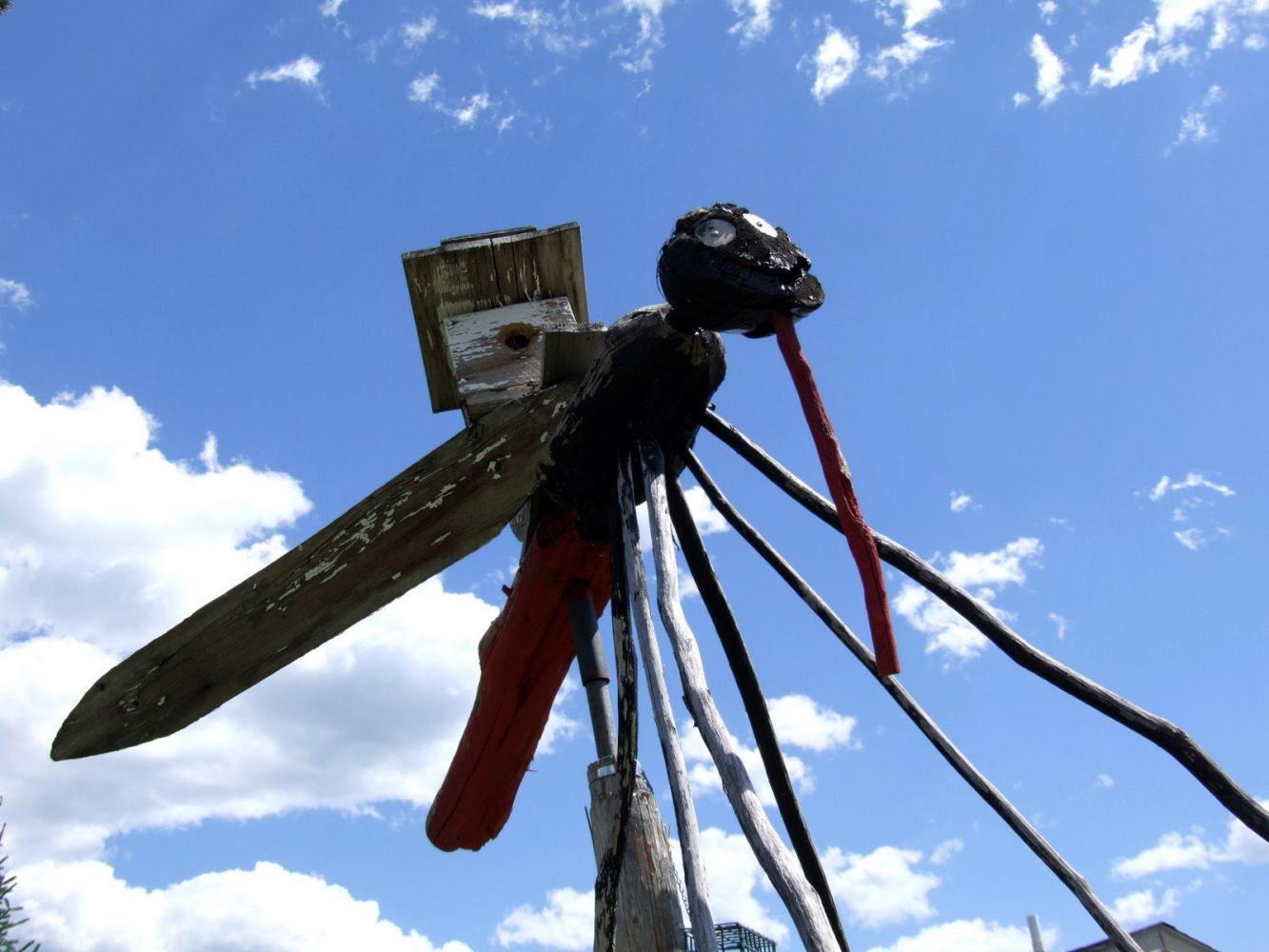July 17: Whitefish to Eureka, Montana
EUREKA IS SO CALLED after the cry by Northern Tier cyclists when they finally reach a stretch of well surfaced road.
To be fair, 79 of today's 99km were fine. It was the final 20. And the reason we rode them is that Adventure Cycling is rightly cautious about US93. It is the direct route from Whitefish to Eureka and for much of the distance it is the only way. It is a single lane in each direction, it is busy and it rarely has a shoulder convenient to anyone but tightrope walkers. We rode it on a Saturday but on every other day except Sunday it must be dreadful. There are logging trucks and commercial vehicles and on Friday there would be RV folk anxious to reach some distant Tin City to spend the weekend.
Adventure Cycling maps provide two escapes, loops of back roads that add a few kilometres but bypass the traffic. The first is idyllic. It is beautiful, flat, well paved and meanders through lush agricultural land and the ranches of gentleman farmers. It is a sadness when it ends.
The second starts in the nothing village of Fortine and climbs a hill, comes back down again, then bobs for ever like a cork. At some time the road was potholed and had stretches of gravel. That's what the map warned us. Since then it has been surfaced and the gravel has gone. But the new coating is microscopically bumpy. You'd think in a car that it was smooth but you have only to see how quickly a bike slows from freewheeling to know it is anything but. It is energy-sapping and dispiriting. I took a packet from which even now, two hours later, I haven't fully recovered.
I can't work this next tale into chronological order, so I'll tag it on here. It concerns the hamlet - not even a village - of Stryker, which lies to the left of the road as you ride west. It is separated from
the highway by the Burlington, Northern and Santa Fe. The Northern, by the way, is celebrated the length of Montana and further east. Business are named after it and you see variations of its orange circle and black lettering in every town.
A dusty road of compressed dust leaves the main highway at a right angle and drops over the tracks. It passes through a collection of shabby, one-storey houses scattered like a child's toys. The few streets have names but nothing stood where the streets were. The white, box-like post office was clean and neat but it opened only a few hours a day. On Saturdays it opened at 7:30 and closed at 9. The postmaster presumably went to the next village and opened up a couple of hours there, and so on through the day.
We sat in the shade of a porch of a dark, wooden home which could have been empty for years. There was no furniture and the rooms had that curious untidiness which remains when folk take almost everything with them. What little remains fills more space than a lifetime's possessions had previously. The one enigma was a white, plastic coffee machine on a window sill.
Across the road, a wooden house at right angles to the road was too derelict to repair. An armchair stood on the veranda like a dog that waits for a dead master. To one side was an outdoor lavatory, doorless and surrounded by long grass.

| Heart | 0 | Comment | 0 | Link |
A man in his 40s, tanned, his shirt unbuttoned to show a belly like the sail of a galleon, waved from the next home along. He had been coming and going, busying himself in a way that let him keep an eye on curious strangers. At the corner of his yard stood a pole more than two metres high. On top was a giant wooden mosquito with a bird box on its back. Hard to say just how big it was but bigger than any wooden mosquito you've seen before.
"My grandfather made it," the man said in a surprisingly soft voice. "No idea when but he homesteaded here and he died back in '90."
Stryker had been a railway town, he said, although "town" seemed to be overdoing it. "Had a depot once but that's all been mechanised now. All there is to do here now is watch the mail van come and go and count the trains."
The post office had 50 mail boxes but that looked likely to shut. He listed the jobs of those who lived nearby and said that he himself was a garden designer. Then he pointed to the house with the porch where we had eaten our sandwiches. "They only just moved in yesterday," he said. "I ain't had a chance to meet them yet." An explanation of the coffee-maker. But who'd move to Stryker?
AMERICAN FLAGS SEEN: 38
| Rate this entry's writing | Heart | 3 |
| Comment on this entry | Comment | 0 |


